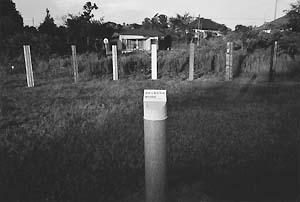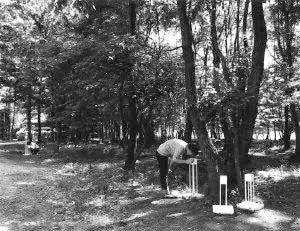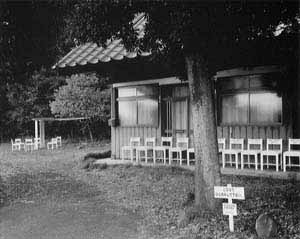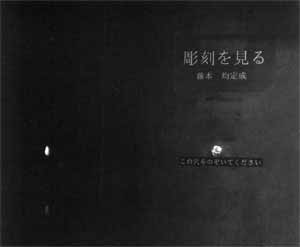
| CAREER | 1951 Born in Wakayama, JAPAN 1957 Studied at TAKAMATSU Jiro Jyuku PERSONAL EXHIBITIONS: 2005 Gallery Yujitsu, Utsunomiya Gallery Kan, Tokyo (’04) 2003 Gallery Hinoki, Tokyo (1992) 1998 Tokiwa Gallery, Tokyo (’97/ ’94/ ’92) 1990 Tamura Gallery, Tokyo (’79/ ’78/ ’77) 1988 Shibuya Seibu Gallery, Tokyo (’86) SELECTED GROUP EXHIBITIONS: 2002 AMABIKI VILLAGE AND SCULPTURE, Sakuragawa Ibaraki (’01/ ’99/ ’79) 2001 9 CERAMISTS EXHI.. Gallery Todoran, Seoul KOREA 1996 DIALOGOS. Contemporary Art Gallery, Art Tower Mito, Ibaraki VERTICECAFE. Odesa UKRAINE 1994 La Parfum. Gallery KOUKI, Paris, FRANCE Curved Space. KUNSTHAUS Nuremberg, GERMANY 1991 New Plastic Art in Kasama. Kasama Nichido Museum of Art, Ibaraki 1990 Creation and Crops. Tokyo Metropolitan Art Museum, Tokyo 1989 Pre-Existence. Setagaya Art Museum, Tokyo 1987 2177 SPIRITUAL (km) Exhibition. Taipei Fine Art Museum, TAIWAN 1985 Tsukuba International Environmental Arts Symposium ’85. Ibaraki 1983 Kyoto Independent Exhibition. Kyoto Municipal Museum of Art, Kyoto (’77/ ’75) No Gravitation. The Miyagi Museum of Art, Miyagi 1982 The 8th Contemporary Sculpture Exhibition. Suma Detached Palace Garden, Hyogo |






